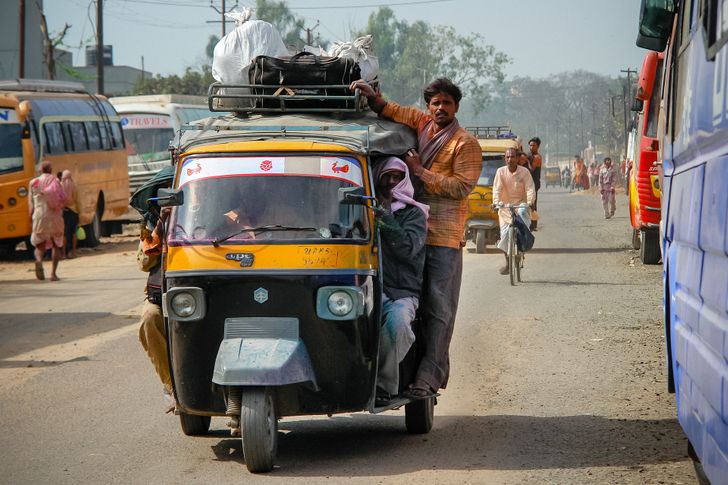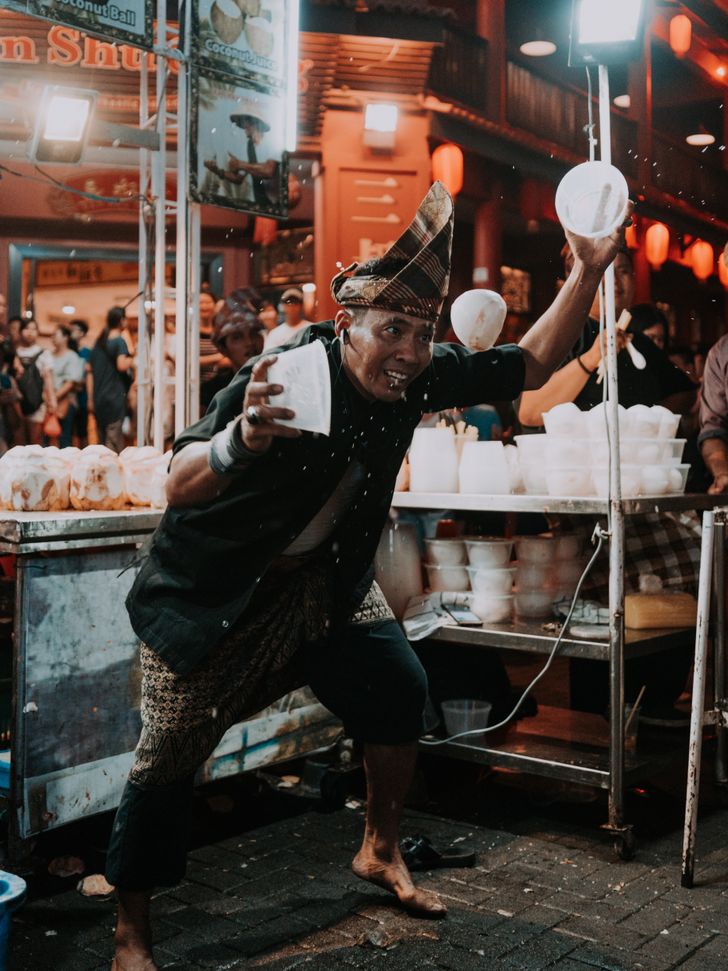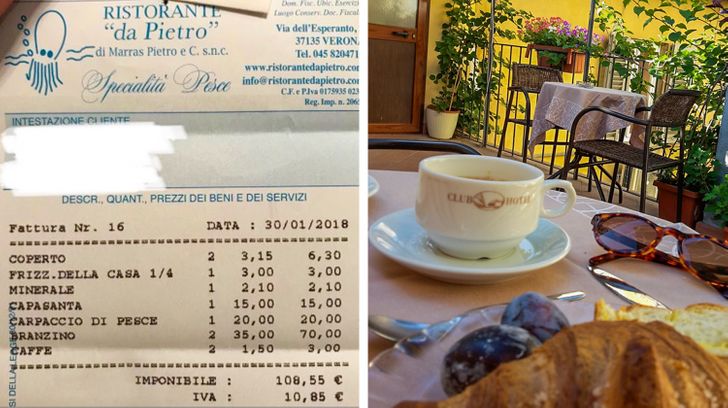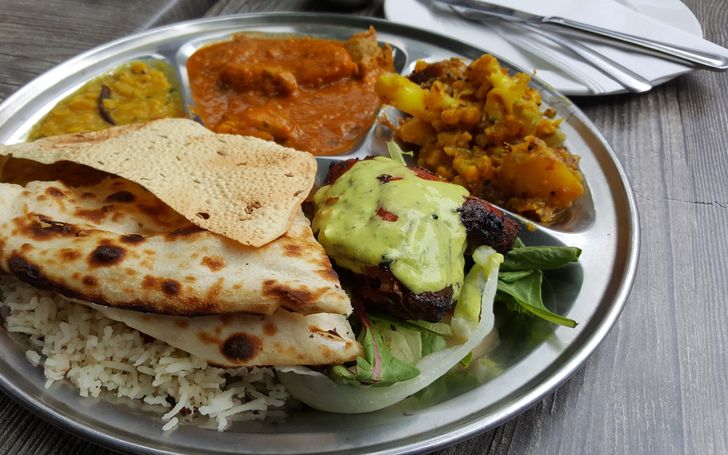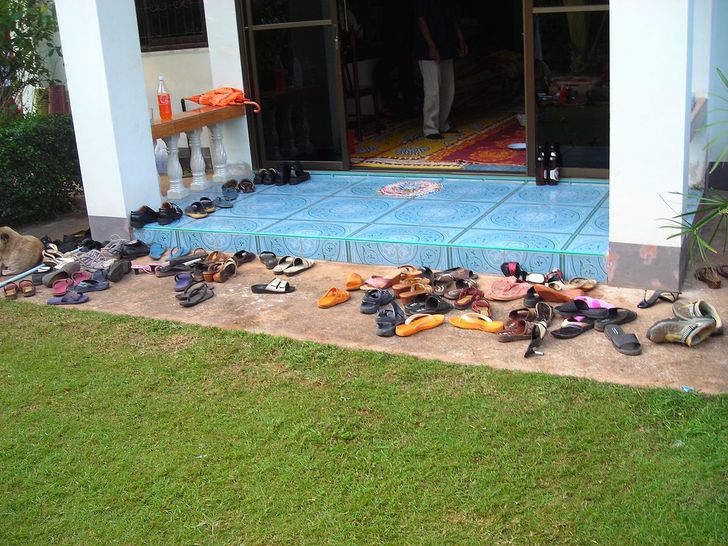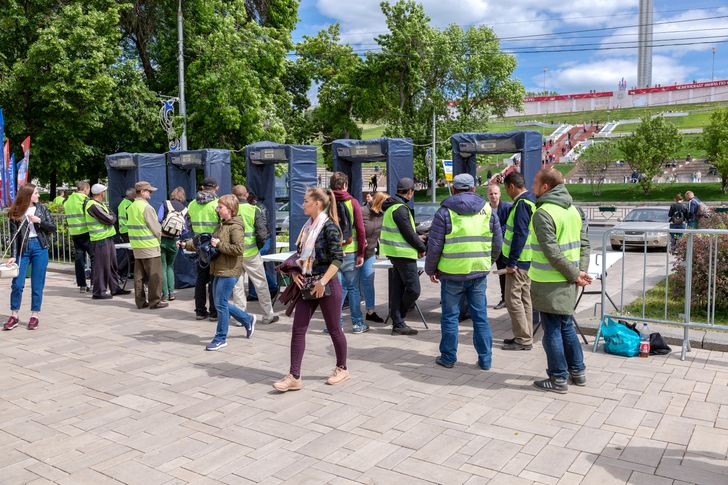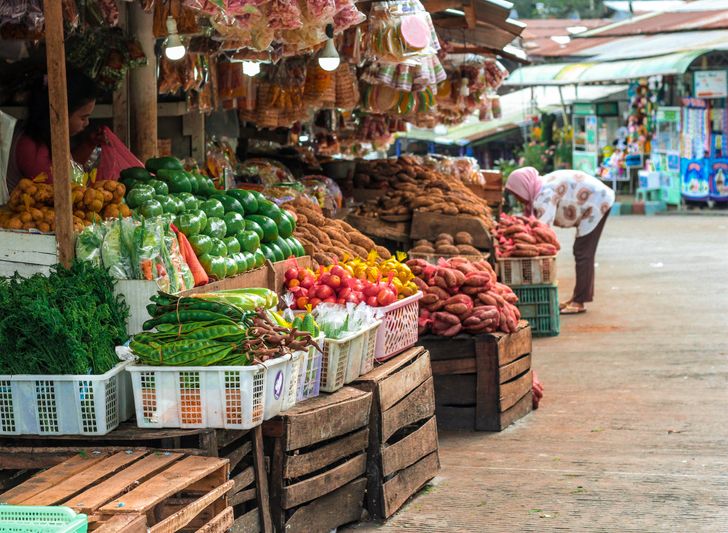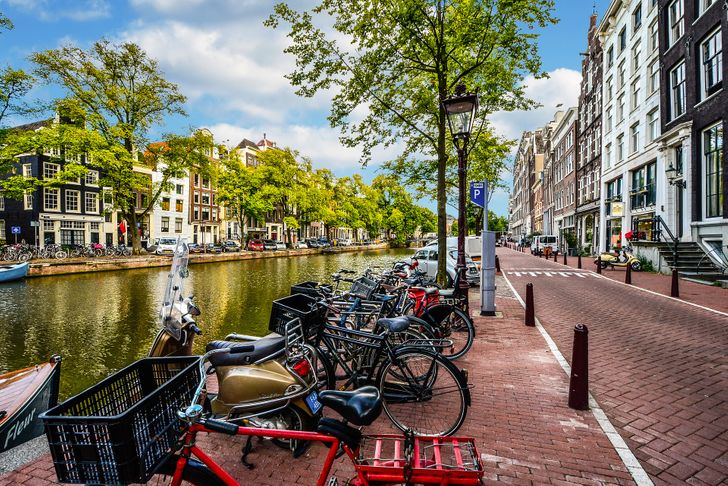Brightside often makes terribly gross generalities, usually about societal roles of women, and what women should do or not do to be attractive. I think I'm done with this terribly awkward website. If you think Brightside is American, we're normally much more tactful and progressive about assumptions and stereotypes when writing.
20+ Things About Other Countries That Tourists Just Can’t Understand

There is a saying, “When in Rome, do as the Romans do,” so when we go to a different country, we follow the rules of this country. However, the differences in mentality and culture can be pretty shocking, even for the most experienced travelers. And if you don’t know the local rules, the least that can happen is that you confuse the local people, and the worst — you could get a fine or even a prison sentence.
We at Bright Side don’t want our readers’ vacations to be ruined by silly mistakes, so we decided to tell you about the most unusual behavior and rules in other countries.
Driving rules and transport
- A rickshaw in India might charge you many times more if you don’t speak Hindi. And in the Southern states of India, the itineraries and number of buses are not listed in English. They are only in Malayalam and Kannada.
-
In Bulgaria, Montenegro, and Georgia (unlike the countries of Western Europe) driving laws are often broken.
-
When you are in Great Britain, prepare to spend a lot on public transport. A single trip costs £4.90 ($6.30).
-
During Shabbat in Israel, there is no way to take any public transport except for a taxi. Or you can go by foot.
-
In Vietnam, during peak hours, cars drive on the sidewalks. Just like cyclists in Germany, they drive at really fast speeds and will drive right through crowds of people. And if you are a slow pedestrian, they might also yell at you.
-
In Thailand, it is almost impossible to find a taxi with a baby car seat and driving there is not safe at all.
Stores
- In Sweden and other European countries, many stores only take credit cards.
- In India, there is no such thing as organized lines in stores. Whoever is the strongest and can push through, gets to buy the food. There may be 20-30 people, but you could spend hours waiting.
- If you take a long time to look at something in a Thai store and then you don't buy it because you don't like it, the owner might get openly aggressive. In general, the people there are nice, but they might start yelling all of a sudden.
Service
- In Italy, the service is included in the bill at almost every restaurant. Many tourists are shocked when they see the final price because it's different from what they expected. The Italian coperto is the service price, which depends on how popular a place is and where it is located.
- In Europe, an internet connection may be very expensive.
- It sometimes feels like it is not people that work in the service industry in Europe, but robots. It is impossible to negotiate and it sometimes gets absurd. An internet user shared this story, "We booked a transfer online for 2 people, but one day before our departure, one more person joined us. We were sure we would be able to negotiate with the driver. A bus that holds 50 people arrived, and only 4 seats were taken. The driver took our bags and wouldn't even listen to us: the reservation was for 2 people, so he could take only 2 people. So we traveled 80 miles on an empty bus."
- In Italy, the price of coffee at a table and at the bar is different.
- In the streets of Southeast Asia, there are a lot of wires everywhere. Aside from looking bad in photos, they are often damaged, so people have trouble using the electricity.
- In India, Nepal, and Sri Lanka, when you call a plumber, an electrician, or any other worker, prepare to have to wait for them for weeks. The same goes for buying water. It can take a long time to receive it and tap water in this part of the world is best to be avoided.
Food
- In France, you can only buy cold popcorn.
- In Italy, they don't drink tea. The best you can find in a restaurant is a teabag that costs €3. To put this in perspective, €3 is enough to buy 2 packs of tea at the supermarket.
- Only the luckiest people manage to not get a stomach virus during their first week in India (even if you cook all the food yourself and wash your hands properly). But after just a few days of torture, your immune system trains itself so well, that it never fails again.
- In the countries of Southeast Asia, people eat with their right hands. The left hand is for the "toilet business." So, if you don't want to be laughed at, don't touch your food with your left hand.
Habits, superstitions, and communication rules
- In Thailand, Indonesia, and other countries of Southeast Asia, they take off their shoes when they enter into any building. It is quite tiring to take off your shoes every time you go into a shop.
- In Canada, complaining to the authorities makes you a responsible citizen. Your neighbor might come by your place, drink a cup of tea with you, be nice to your daughter, and 30 minutes later, a group of people comes to your doorstep because someone complained about your unmowed lawn.
- Norwegians can never sit in front of someone they don’t know on a bus. Instead, they will stand on the bus, even if it is uncomfortable for them.
- What can be confusing is how friendly European people appear to be. An internet user said this, “I was visiting my friend in Sweden and I was treated like a Queen. Her husband is Swedish and he was very happy to help me. He drove me around their town, even though I tried to refuse. When I got back home, I was shocked by my friend’s call. She asked me to never come back again. It turned out that her husband was uncomfortable with me spending a whole month with them.”
- In Georgia, people talk about all kinds of little things, all the time. Some people enjoy this, but it can be very tiring when you spend 15 minutes talking about how you went to the supermarket.
- In Asia, nobody is in a hurry. When you are running late for the airport, a taxi driver might just stop and eat some street food for 10 minutes.
- When you ask for directions in many countries in Southeast Asia, they might lie to you and confuse you. For some reason, they lie a lot.
- Depending on the context, the same head gesture that Indians make can mean yes, no, or I don’t know.
Rules and fines
- In China, having to go through metal detectors all the time, even in the streets, and especially downtown, can be very annoying. In Spain, you might have to pay a €500 fine if a policeman feels that you were not respectful enough.
- The Berlin underground is divided into zones. The fine for going into a zone with the wrong ticket is €80. You buy the tickets from a vending machine and you have nobody there to ask for help.
- In Singapore, you can be fined $400 for throwing a cigarette or chewing gum on the ground. If you are going to smoke in a public place, you will have to pay a fine of $800.
- In Egypt, it is strictly forbidden to take photos of military objects and government buildings. You will go to jail for this.
Paid services and using money
- In European shops, many sellers don’t put price tags on their goods and this is how they make money on tourists. Try checking other places before paying twice as much for some souvenir.
- In Europe, it is impossible to pay cash for some services. If you don’t have a credit card, you might not be able to get from your hotel to the airport.
- In Western countries and Israel, you have to tip everyone for everything: for cleaning your room, for helping with your luggage, for giving you a towel at the pool, etc.
- Discounts and sales in Europe are never announced. You have to be aware of them.
- Using the elevator in Georgia is not free when going up. It doesn’t cost a lot, but if you don’t have coins on you (and you usually don’t), you have to use the stairs. It is not much fun when you have bags to carry.
Other things
- In Sweden and the Netherlands, there are no curtains on the windows. In France, they don't use mosquito nets.
- Most Danish apartments don't have bathrooms, only showers. And the shower might not be in the bathroom, but is sometimes in the kitchen.
- "The wrong" power outlets in any country will annoy anyone. Especially if your phone battery is dying and you only realize this in the evening, when all the stores are closed.
- In the United Arab Emirates, doctors prescribe way too many antibiotics. Even if you only have a runny nose or a headache.
- A regretful toilet story from an internet user, "When we were in India, we took a train to a different town. My friend went to the bathroom and 5 minutes later, he called me from the toilet. He was desperate. The Indians don't use toilet paper, but he didn't find this out until it was too late.
Have you ever been shocked by the things you have seen abroad?
Comments
I am Canadian and I have no idea what your talking about. Neighbors are usually very friendly with each other and I do not understand who this group of people are that come to your door to complain about your yard?? If you got that one so very wrong then how are we to believe any of these statements.
”In Sweden there are no curtains on the windows”. Thats the dumbest fxxing thing i read today. Try visit the countries you write about before writing about them
I'm in the UK but have travelled a lot. All of your "facts" about "Europe" (more than 30 countries, care to specify?) are completely wrong!
Related Reads
19 People Shared Things That Are Pretty Normal in Their Country but Might Be Considered Weird in the Rest of the World
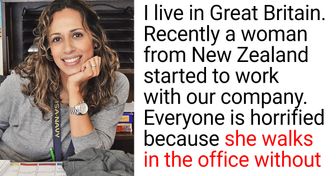
15 People Share Cool Stories That Almost Seem Unbelievable

15 Women Shared Safety Tips That Once Saved Their Lives, and We Want You to Hear Them Out

A Rude Passenger Insulted Me in Another Language, So I Made Her Flight Miserable
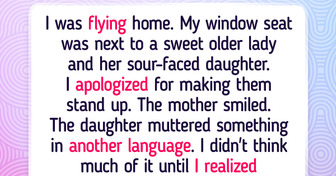
15+ Guys That Would Give Anything for a Minute of Sleep
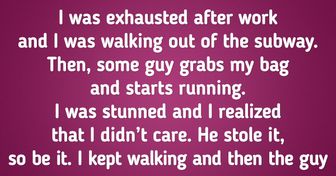
8 Differences Between Men and Women Very Few People Know About
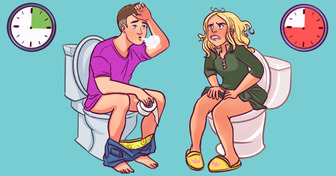
21 People Share the Eerie Stories That Made Them Stop Cold in Confusion

14 Startling Stories From Shop Assistants That Astonished Them to the Core
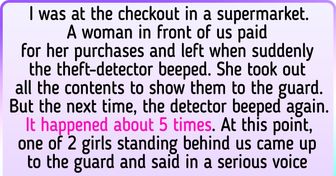
15 True Stories Stranger Than Any Hollywood Script
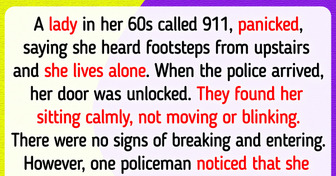
10 Times Kids Spilled Family Secrets and Shocked the Entire Room

I Refused to Babysit My Sister’s Kids for Free, Now My Whole Family Is Against Me
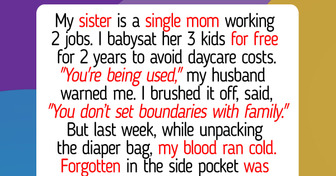
16 Tiny Acts From Strangers That Left Permanent Marks on People

